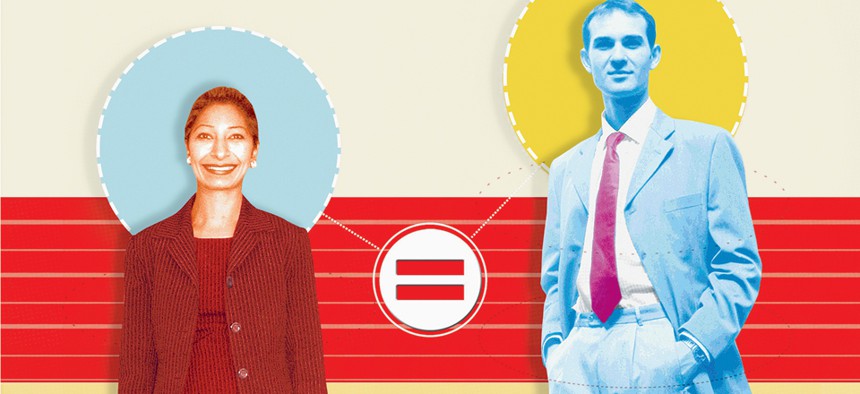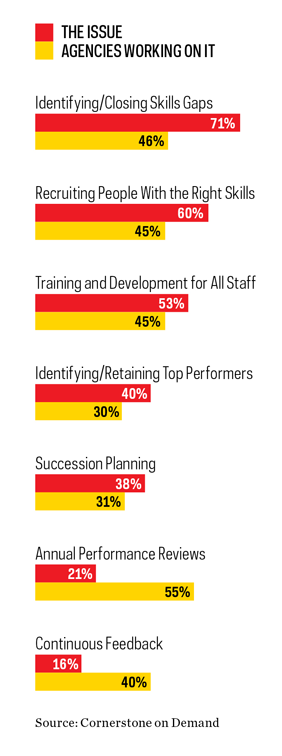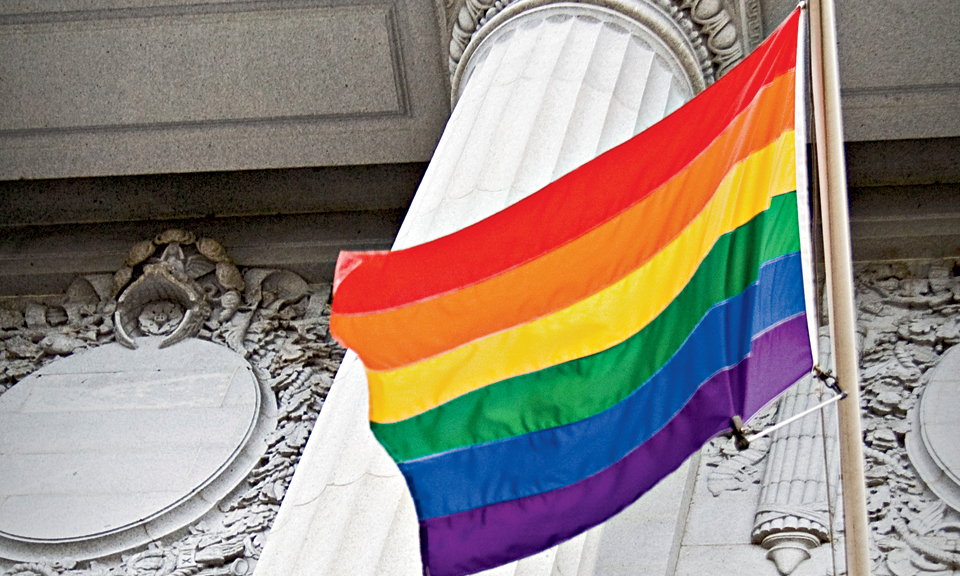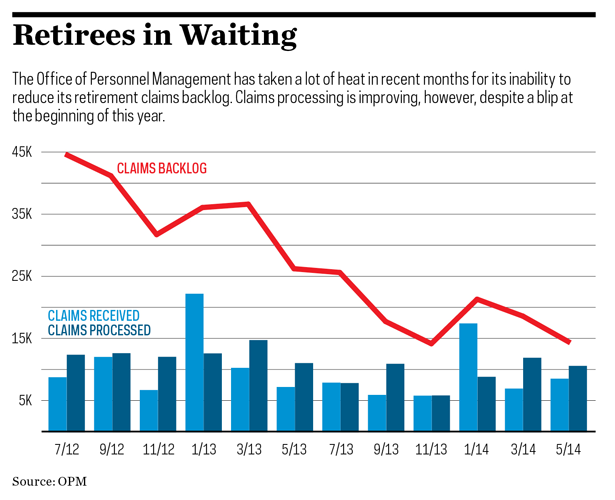
Corbis
Narrowing the Gender Gap
Women feds are better educated and better compensated these days.
By Kellie Lunney
T rue or False: The gender pay gap is smaller among younger employees in the federal government.
True.
In fact, a lot has changed for women in the federal workforce since 1992. For instance, women now earn more than men in some of the traditionally male-dominated civil service positions, such as pilot/navigator and business/industry professional.
The federal government has narrowed its gender pay gap by 17 cents on the dollar over the past two decades, with women earning 87 cents for every dollar a man earned in 2012. Female employees are better educated and better compensated now than they were in the early 1990s, but they are still underrepresented in the top ranks, making up only about one-third of the Senior Executive Service. Other interesting stats from the Office of Personnel Management:
- 53% : Percentage of new federal hires in white-collar professional jobs who were female in 2012
- 93¢: Amount women at the Agriculture Department earned for every dollar a man earned in 2012

The People Problem
Skills and training gaps are top concerns among federal personnel leaders, yet agencies aren’t necessarily focusing their resources accordingly, says a recent survey by the human resources consulting firm Cornerstone by Demand.
As the retirement wave hits, agencies must develop long-term strategies to address turnover, acquire needed skills and optimize the talents of their remaining workforce, the report warns.
Who Said Print Is Dead?
Society’s shift to digital reading has by no means lessened the responsibilities of those who curate the government’s wealth of printed assets. So when the Library of Congress confronts damage from the march of time to its 36 million books and 68 million manuscript holdings, it turns to a unique commercial contractor: Pittsburgh-based Preservation Technologies LLP.
Since 1995, federal librarians have been shipping books and manuscripts to the vendor—now at a rate of 4,350 a week. That’s 226,400 books and some 900,000 manuscript pages per year that must be deacidified.
“If treated when new, the life expectancy of a book printed on acidic paper can be extended by 300 years,” says LOC spokeswoman Gayle Osterberg. The library’s preservation strategy includes better storage environments and digital reformatting.
The books are bathed in alkaline in cylindrical containers, and each batch and takes two hours to process. The team works 24/7, five days a week.
The company’s other division, Media Preserve, can transfer any image or sound to digital format. One project relies on rare reel-to-reel machines to transfer federal data from Explorer satellite missions in 1958—before the formation of NASA.
- Charles S. Clark

Gay Rights At Work
Few report discrimination, but LGBT protections are still lacking.
For much of its history, the federal government has not taken kindly to gay employees. In the 1950s and 1960s, the public maintained a “campaign against employing gays and lesbians” in the federal service, according to a recent report from the Merit Systems Protection Board. Thousands of federal workers lost their jobs due to sexual orientation.
Members of Congress tied homosexuality to their campaigns against communists, and one committee found “homosexuals and other sex perverts were not proper persons to be employed in government for two reasons—first, they [were] generally unsuitable, and second, they constitute[d] security risks.”
But things are getting better, according to MSPB, which reported just 2 percent of feds say they are discriminated against due to sexual orientation.
Still, federal LGBT employees do not receive the same legal protections as their heterosexual counterparts.
The 2002 Notification and Federal Employees Antidiscrimination and Retaliation (No FEAR) Act requires agencies to inform workers of their rights to combat discrimination in all areas except sexual orientation. Additionally, MSPB says, a Clinton executive order preventing prejudice against LGBT employees is based on interpretation, not law, and does not provide legal recourse for gay workers.
Such ambiguity, MSPB says, would be resolved by legislation prohibiting discrimination based on sexual orientation.
In June, President Obama directed staff to prepare an executive order to prohibit federal contractors from discriminating against lesbian, gay, bisexual and transgender employees.
- Eric Katz

NEXT STORY: Are Your Workers Just Checking the Box?






